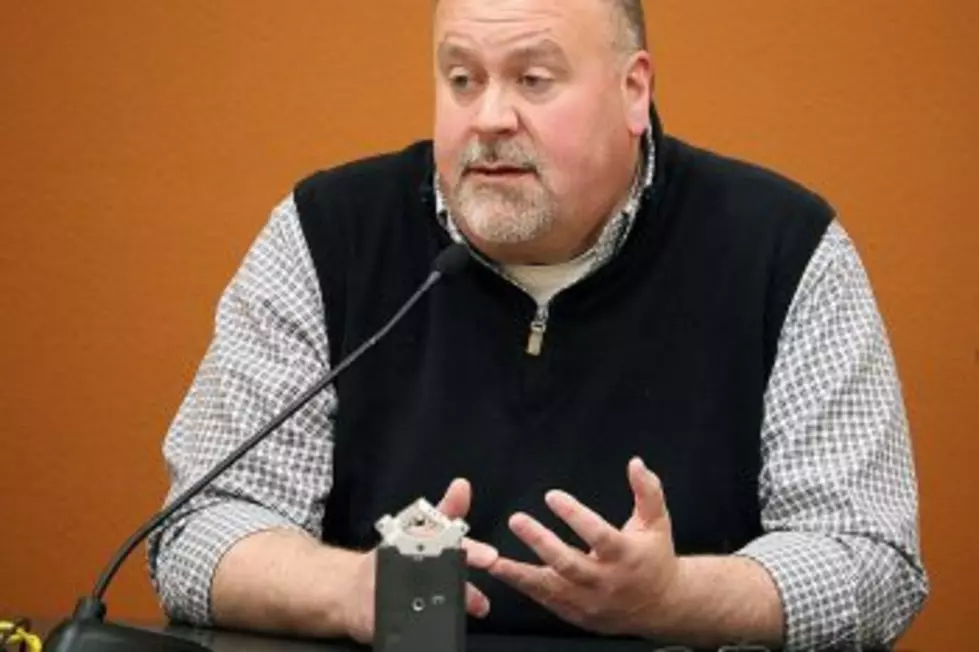
Taxes, sports, housing and pandemic dominate virtual “State of the Community”
City and county leaders on Monday doubled down on their decision to purchase the Sleepy Inn as a quarantine shelter and expressed optimism about the region's chances for economic recovery in the wake of COVID-19.
In the first ever virtual “State of the Community” presentation, Missoula Mayor John Engen, county Commissioner Josh Slotnick and University of Montana President Seth Bodnar touched on taxes, collegiate sports and housing, and the inequities revealed by the pandemic.
In year's past, the forum has served as an opportunity for the three officials to discuss pressing issues, along with future strategies and goals. But this year, they answered just a handful of questions selected by the moderator.
Most of those hinged on taxes, including a recent increase in taxable values.
“The largest increase in property taxes is a function of Department of Revenue assessments,” said Engen. “Every two years, DOR evaluates the value of property, and our taxes are based on that valuation.”
During last year's budget cycle, the city took a remittance from the Missoula Redevelopment Association to help cover the budget. Combined with an increase in valuations from the state, the city was able to “keep taxes flat,” as Engen described it.
Based on estimates from DOR, Engen said the recent pandemic won't likely diminish property values. But the budget season is quickly approaching, and it's not yet clear what aid local governments will receive from the state and federal governments.
“There is aid to local governments, but we're not hearing that that aid comes in the form of property tax relief,” Engen said. “As we enter our budget cycle, we're having a hard look at what fiscal year 2021 looks like, and we'll be peaking out into 2022 and '23.”
Engen and Slotnick expressed ongoing frustration over the state's tax system, which they believe places a heavy reliance on property owners. Montana has no sales tax, and local governments receive only a modest amount of state income tax.
Adding to the budgeting challenges, Slotnick said, the county saw a reduction in federal Payments in Lieu of Taxes last year, and it recently lost money from centrally assessed properties.
“These are two big sources of tax revenue that went away,” Slotnick said. “We also had some properties that were paying property taxes that are no longer part of Missoula County. That leaves us with one tool by which we can generate revenue to pay for services. That overused, poorly designed tool is property taxes. We're striving to come up with new alternatives.”
While the county looks for new revenue streams, it recently delayed two of those revenue sources in light of the pandemic. Last month, it delayed the collection of property taxes on mobile homes and taxes on personal property, or business equipment.
“These two delays are really designed to ameliorate some of the harshness of this crisis on two specific populations – low income folks and business owners,” Slotnick said. “A big challenge for us is to come up with other ways pay for services other than property taxes.”
The pandemic and its consequences played into most issues addressed on Monday, including the city's purchase of the Sleepy Inn as a quarantine shelter. As of Monday morning, Engen said, four individuals were residing at the facility awaiting the results of recent coronavirus testing.
Engen said the purchase was both wise and necessary, and he dispelled a number of rumors posted to social media by critics of the acquisition.
“I've seen a lot of misinformation around the Sleepy Inn project,” he said. “Facebook isn't necessarily the best form of information. The fact is, we purchased the Sleepy Inn because of an emergent need expressed to us by the health department. If not for a safe place for those folks to be housed, they'd be out in the community potentially spreading the virus.”
Engen said the facility will also play into the city's long-term plans for housing. As part of the city's housing strategy, it has been banking land for future development, including the motel property, a downtown parcel and several acres near Southgate Mall.
“Part of our housing strategy has been to acquire land in the right places,” Engen said. “Housing is a critical issue for all Montana communities, urban and rural. It's a critical need all around Montana, and we'd be able to solve a lot of our problems in all those communities if people had affordable, decent places to live.”
On the economic front, all three officials expressed optimism for the future, saying the steps taken locally will enable the community to recover more quickly. While local businesses slowly reopen, the collegiate sports season remains uncertain, including football and basketball.
Both generate significant amounts of revenue, both for the university and the local community.
Bodnar said the athletic season is under review. He spoke earlier in the day with the Big Sky Council of Presidents, which is working with the NCAA and health officials in reviewing the approaching season.
“We're looking at both the conditions here in Montana as well as across eight different states in which we have Big Sky Conference universities,” Bodnar said. “You have considerations around travel for out-of-state teams and conditions in certain states. The key word here is going to have to be flexibility. We're going to have to be pretty flexible here, and that's what we're working on right now.”
Bodnar said a decision would likely be made this summer.
